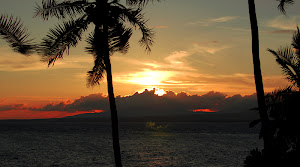Silliman University was the first University founded in Dumaguete. Now one of many institutions of higher learning here, it retains the reputation as one of the most prestigious and rigorous Universities in the Philippines. Dumaguete is known a a University town, and Silliman is the keystone and flagship institution here.
Silliman University was founded by American missionaries of the Presbyterian Church on August 28, 1901, making it the oldest American university in Asia. Originally named Silliman Institute, an elementary school, it was started with funds from Dr. Horace Brinsmade Silliman, a retired businessman and philanthropist from Cohoes, New York. Silliman was an active layman in the Presbyterian Church.
The school began with 15 male students, four desks, two tables, and two chairs. The First President of the University was David Sutherland Hibbard of Lyndon, Kansas. His statue is in front of the CAP Building on Rizal Boulevard, Dumaguete. The first faculty consited of Reverend Hibbard and his wife Laura. From 1901 to 1912, it was a boys school. In 1910, Silliman was given the right to confer degrees. In 1912, girls were admitted for the first time. In 1938, Silliman became a university, the first school outside of Manila to be granted university status.
Silliman has a main campus near the center of Dumaguete City, dotted by large acacia trees. The campus has a land area of 610,000 square meters. It originally faced the sea to the east and its gates are flanked by the portals which are now symbols of the university.
Other facts:
* The school is recognized by the Commission on Higher Education as being a "Center of Excellence" in nursing, teachers' education, and Coastal Resources Management.
* Silliman University is CHED Center of Development in Physics, Biology, Marine Sciences Mechanical Engineering, Business and Management Education, and Information Technology.
* The school is host to the annual Church Workers Convocation, a gathering of hundreds of members of the United Church of Christ in the Philippines— from around the country.
* It is among the top 3 schools in physical therapy with outstanding board exam performance.
* Silliman is among the country’s top 3 centers for development in Business Education.
* The College of Agriculture ranked among the Top 3 schools in the country.
* The College of Performing Arts (formerly School of Music and Fine Arts) has produced great names in Philippine Music Education history. Among them are ethnomusicologist Priscilla Magdamo, violinist Gilopez Kabayao and baritone Elmo Makil. Silliman is also a pioneer in Choral Music Education in the country.
* The Silliman Information Technology program received 100% rating from CHED.
* Silliman is also recognized as one of the leading schools in marine biology in Asia with the Marine Laboratory as its home.
* Silliman is among the country’s Top 10 schools included in the annual BPI Science Awards for student achievement.
* Silliman has a continuing exchange student program with three Japanese Universities (International Christian University, Shikoku Gakuin University and Ferris University).
* Silliman is on the Top 10 List of schools in the Philippines listed as No. 4.
Silliman University was founded by American missionaries of the Presbyterian Church on August 28, 1901, making it the oldest American university in Asia. Originally named Silliman Institute, an elementary school, it was started with funds from Dr. Horace Brinsmade Silliman, a retired businessman and philanthropist from Cohoes, New York. Silliman was an active layman in the Presbyterian Church.
The school began with 15 male students, four desks, two tables, and two chairs. The First President of the University was David Sutherland Hibbard of Lyndon, Kansas. His statue is in front of the CAP Building on Rizal Boulevard, Dumaguete. The first faculty consited of Reverend Hibbard and his wife Laura. From 1901 to 1912, it was a boys school. In 1910, Silliman was given the right to confer degrees. In 1912, girls were admitted for the first time. In 1938, Silliman became a university, the first school outside of Manila to be granted university status.
Silliman has a main campus near the center of Dumaguete City, dotted by large acacia trees. The campus has a land area of 610,000 square meters. It originally faced the sea to the east and its gates are flanked by the portals which are now symbols of the university.
Other facts:
* The school is recognized by the Commission on Higher Education as being a "Center of Excellence" in nursing, teachers' education, and Coastal Resources Management.
* Silliman University is CHED Center of Development in Physics, Biology, Marine Sciences Mechanical Engineering, Business and Management Education, and Information Technology.
* The school is host to the annual Church Workers Convocation, a gathering of hundreds of members of the United Church of Christ in the Philippines— from around the country.
* It is among the top 3 schools in physical therapy with outstanding board exam performance.
* Silliman is among the country’s top 3 centers for development in Business Education.
* The College of Agriculture ranked among the Top 3 schools in the country.
* The College of Performing Arts (formerly School of Music and Fine Arts) has produced great names in Philippine Music Education history. Among them are ethnomusicologist Priscilla Magdamo, violinist Gilopez Kabayao and baritone Elmo Makil. Silliman is also a pioneer in Choral Music Education in the country.
* The Silliman Information Technology program received 100% rating from CHED.
* Silliman is also recognized as one of the leading schools in marine biology in Asia with the Marine Laboratory as its home.
* Silliman is among the country’s Top 10 schools included in the annual BPI Science Awards for student achievement.
* Silliman has a continuing exchange student program with three Japanese Universities (International Christian University, Shikoku Gakuin University and Ferris University).
* Silliman is on the Top 10 List of schools in the Philippines listed as No. 4.





No comments:
Post a Comment